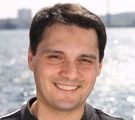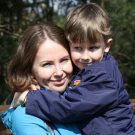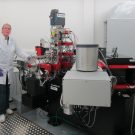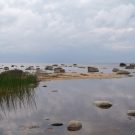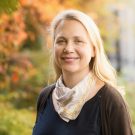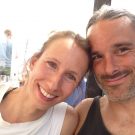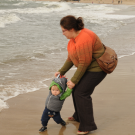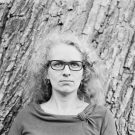What is the nature of your work? I´m working on assessing the impacts of future sea level rise: not only physical but also socioeconomic impacts. We account for climate change but also for socioeconomic developments. Career as a researcher. I have been relative mobile. I did my first degree in surveying engineering at the National […]
Sharing the caring: marine ecologist Karolin Teeveer
What is the nature of your work? Lab technician – mainly the job involves benthic and pelagic sample analysis. The job is rather stationary and due to the nature of the analysis also rather restrictive in consideration of the working environment and workplace since speciality equipment is necessary. A career as a researcher. I have […]
Sharing the caring: marine ecologist Dr Rasa Morkūnė
What is the nature of your work? I’m working as a researcher at Marine Research Institute of Klaipeda University which is located at the Baltic Sea coast in Lithuania. Our institute is male-dominated as it is common in the field of marine ecology. However, I know it only from statistics – it is not really […]
Sharing the caring: head of the NanoSIMS lab Dr. Angela Vogts
What is the nature of your work? I am the head of the NanoSIMS lab at the Leibniz Institute for Baltic Sea Research. The NanoSIMS facility is open to all scientists and thus I am in contact with different working groups of the institute as well with national and international scientists. I supervise a technician […]
Sharing the caring: a biogeochemical modeller Dr. Friederike Prowe
What is the nature of your work? I am a Postdoc (i.e. on a temporary position) working in biogeochemical modelling funded by the GEOMAR Helmholtz Centre for Ocean Research Kiel. As a modeller, I spend most of my time working behind a desk in front of a computer. It involves mainly research and a tiny […]
Sharing the caring: a marine biologist’s story*
*This time you can read an anonymous story where a marine biologist shares his experience. What is the nature of your work? I have a background in marine biology working with plankton. Career as a researcher. I finished a PhD in marine biology and continued as a postdoc. After obtaining a fellowship, I was offered […]
Sharing the caring: marine geologist Helena L. Filipsson
What is the nature of your work? I’m a full professor of Quaternary Geology with an emphasis on Marine Geology at Lund University, Sweden. I teach ~ 20%, service (mostly committee work) ~ 10%, and do research 70%. Career as a researcher. I defended my PhD in Oceanography, University of Gothenburg, Sweden in late 2003. […]
Sharing the caring: biologists Katja and Jan Dierking
What is the nature of your work? Katja Dierking: I am a staff scientist (tenured faculty member) at the Zoological institute at Kiel University. I am a molecular biologist and study host-microbe interactions in the nematode Caenorhabditis elegans. My work involves science, teaching, and administration. Jan Dierking: I am a scientist (relying on 3rd party […]
Sharing the caring: physical oceanographer Loreta Kelpšaitė Rimkienė
What is the nature of your work? I’m a senior researcher at the Marine Research Institute, Klaipeda University. My main interests are wave dynamics and their impact on the sandy coast. Career as a researcher. I got my first degree in physics. The undergraduate work on standing waves in semiconductors has evolved into the study […]
Sharing the caring: marine biologist Helen Orav-Kotta
What is the nature of your work? I am a marine biologist, a benthologist and the centre of my research area is the northern communities, plants, animals, and everything connected with them in marine environments. Since in nature everything is interconnected, I have had the change to study sediments, chemistry, plankton communities and also fish. […]
